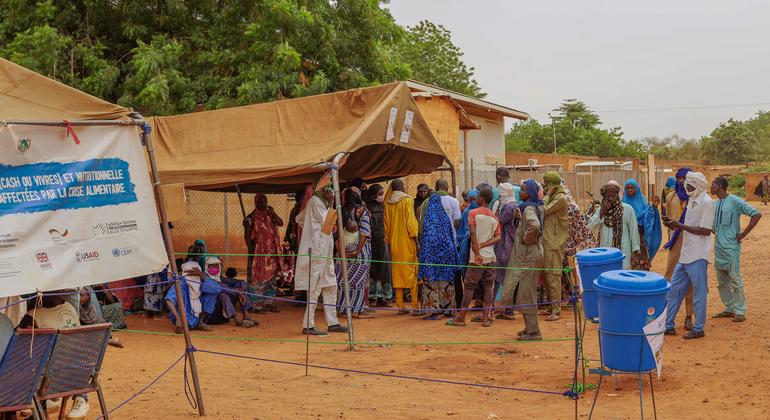
IOM Regional Director Christopher Gascon told reporters in Geneva that 4,800 migrants were hosted by IOM at seven transit centres in the country, awaiting voluntary return. They were primarily from western Africa: Mali, Guinea, Senegal and Nigeria, he said.
Charter flights
Mr. Gascon said airport access was crucial to “organise charter flights in order to return people home”.
He stressed that IOM’s transit centres were currently 40 per cent over capacity and an additional 1,400 migrants outside the centres needed help.
Mr. Gascon added that setting up a corridor would also facilitate the delivery of aid to conflict-affected areas of Niger.
Hundreds of thousands displaced
According to the UN, Niger hosts more than 710,000 forcibly displaced people including refugees, asylum seekers and internally displaced persons.
When neighbouring countries closed their borders following the 26 July military takeover and flights were suspended, it became very difficult for migrants to leave the country, and IOM noted “heightened internal movements, driven by the urgent need for individual security”.
$1 million per month required
The UN agency said that its operations in Niger were constrained by limited funding and called for financial support “to prevent the situation from escalating into a full-blown humanitarian crisis”.
The humanitarian appeal for the country is only about 30 per cent funded, Mr. Gascon said, and providing assistance to people in the transit centres requires at least a million dollars a month.
Apart from operating the migrant centres and organising voluntary returns, IOM underscored that it runs a “community stabilization programme” in Niger to promote resilience among vulnerable communities, create jobs and improve livelihoods.
Ban on aid in military operation zones
Mr. Gascon told reporters that he was also expecting the sanctions imposed on the country by the Economic Community of West African States (ECOWAS) at the start of the political crisis, blocking the ability to bring in goods, to impact IOM’s operations.
Further obstacles to aid are looming in Niger, as late on Wednesday the country’s military leaders reportedly announced that they were barring UN agencies as well as non-governmental organisations from working in military operation zones.
The UN’s humanitarian affairs coordination office (OCHA) said that it was reaching out to the de facto authorities to better understand the implications and scope of the announcement.
Overall, some 4.3 million people in Niger are dependent on aid.



